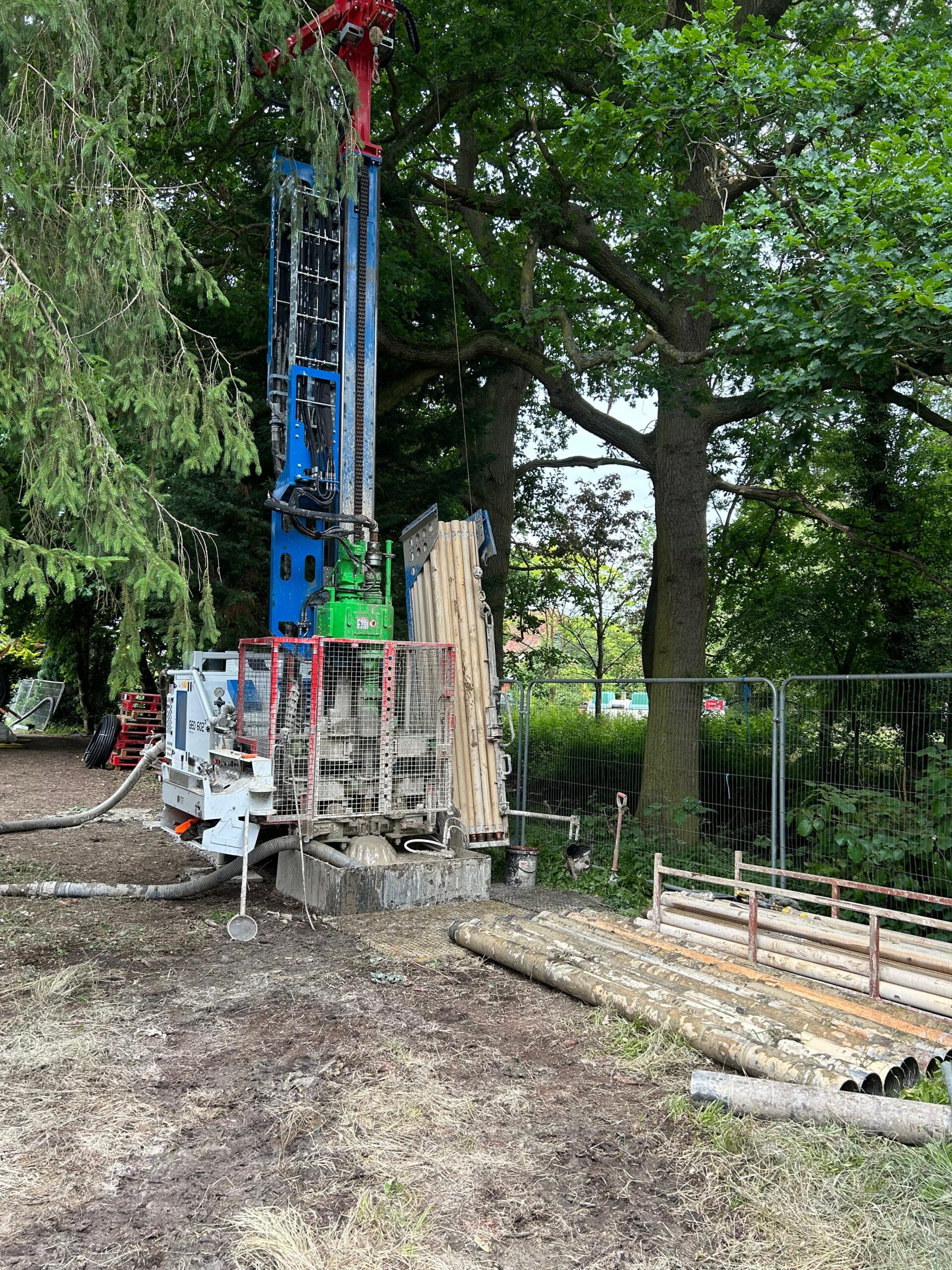
Posted On 07th Jan, 2019 | Posted By Teckna Group
If you are a looking for a renewable and cost-effective way of heating your property, then your prayers could be answered with a ground source heat pump. “What on earth is one of those?” we hear you ask, well the team at Teckna Group is on hand to give you the lowdown.
This simple piece of technology comes hand-in-hand with a range of benefits and is perfect domestic and commercial projects. However, unless you work in the geothermal industry, it is probably something you’ve never come across before.
With this in mind, we thought we would provide a quick introduction to ground source heat pumps and answer some of the most frequently asked questions regarding the geothermal drilling process.
What is a ground source heat pump?
A ground source heat pump is a heating and cooling system that is installed underground. Radiation from the sun heats the earth’s crust on a year-round basis and, essentially, the heat pump takes advantage of this fact. It transfers the natural heat into a ground loop (i.e. a network of buried pipes), passes it through an evaporator, compressor and condenser then release it for use.
There are two main types of geothermal heat pump available, so it is important to consider which will be most suitable for your property. If there is sufficient space, the ground loop can be laid horizontally, approximately a metre below ground. However, in most cases – where available space is limited – vertical geothermal boreholes (around 15-100m deep) will be needed instead.
How does a geothermal heat pump work?
Geothermal heating may sound complicated, especially if you have no prior knowledge of how it works. However, it is actually a very simple process that can be broken down into 5 easy steps.
- Heat is extracted from the soil by the ground loop and absorbed into a refrigerant fluid
- This fluid is moved to an evaporator, where it is changed from a liquid to a gas
- This gas is subsequently compressed, allowing its temperature to rise
- It is then passed through a condenser, or heat exchanger, into a central heating system
- Finally, the cooled refrigerant fluid is released back into the ground and the cycle starts again
The ground source heat pump diagram highlights this process visually below.

How is a geothermal borehole installed?
Before a geothermal borehole can be installed, the first step is to organise geothermal surveys. This will indicate the thermal characteristics of your site, including whether the ground is suitable for a deep-seated borehole and whether it can be feasibly accessed by large borehole drilling equipment.
Specialist geothermal well drilling rigs will then be sued to dig a borehole and vertical pipes are inserted. The space between the pipes and the borehole wall is filled with a specialist type of grout, and, once all has been completed, a series of tests will be conducted to check that the system works correctly.
Ground source heat pump boreholes are typically drilled 5-6m apart and should be at least 6-7m from the nearest building. Their depth is determined by the size, insulation and heating capacity of the property and their cost varies depending upon your exact needs and requirements.
Contact Teckna Group for geothermal borehole drilling
Teckna Group is a multi-disciplined drilling and civil engineering company, with a significant level of knowledge, experience, and expertise in this area. Working alongside accredited MCS ground source heat pump partners, we offer a comprehensive turnkey geothermal borehole drilling service – including geothermal surveys, geothermal well drilling and geothermal pipework – for both domestic and commercial projects.
If you would like to find out more about geothermal heat pumps and how they could be of benefit to you and your property, why not get in touch? Our team of experts are always happy to help and will answer any questions that you may have. Either call us today on 01257 421700 or send an email to enquiries@tecknagroup.co.uk and we will respond as soon as possible.
Posted On 07th Jan, 2019 | Posted By Teckna Group
Recent Posts

Teckna Group redevelop Packington Wte generation site
Ready To Start A New Project? We Want To Hear From You.
Please provide as much information as possible below, and our team will be in touch.
For urgent enquiries, call our head office.
Head Office
Saddle Hill Farm, 277 Preston Road, Standish, WN6 0NZ


